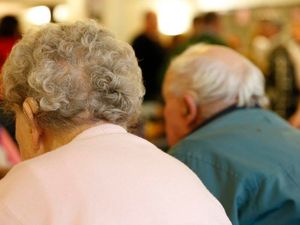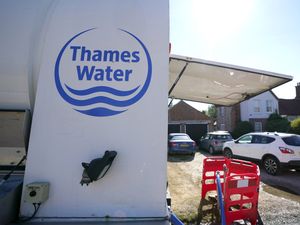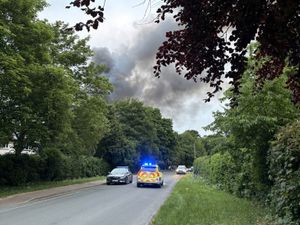Frustration as care workers and community nurses still lack protective gear
Unions said many workers are being given only ‘the same protection that they use to make a sandwich’.

Care workers and community nurses are still struggling to do their jobs safely and with adequate protective gear, with experts saying they are “frustrated at the lack of pace”.
Weeks into the coronavirus pandemic, unions said many care home workers remain without masks or hand sanitiser, with just plastic aprons and gloves for protection.
The PA news agency has heard examples of face masks being rationed out among workers due to short supply.
In one case, a care home worker with a 22-month-old child was told he and colleagues would have to nurse sick residents despite not being issued with proper personal protective equipment (PPE), the union Unison said.
Another worker in a children’s home, who is down to her last bottle of hand sanitiser, said: “I’ve shared my own bottle of sanitiser with young people and colleagues, and only have enough to last one more shift. I worry I may take the virus home and give it my elderly mother.”
Unison assistant general secretary Christina McAnea said: “Care workers are being treated as though their safety and that of their loved ones doesn’t matter.
“They feel they’ve been forgotten about and are at the bottom of the pile despite doing a vital job.”
The GMB union said it is receiving hundreds of calls a day from social care workers concerned about a lack of PPE, while staff are sometimes expected to turn up even if they have Covid-19 symptoms.
Kelly Andrews, GMB care lead, said staff are being given a plastic apron and a pair of gloves – “the same protection that they use to make a sandwich”.
Mark Topps, a manager at Little Wakering House, in Essex, said he feels the care home has been left to cope by itself.
He has spent the last two to three weeks trying to order 100 face masks, which have not yet arrived.
And on Monday he was forced to drive an hour and a half to replace a digital thermometer, which he paid almost £60 for.
About 25% of his staff have had to self-isolate over the past few weeks, while one resident has potential coronavirus symptoms.
No staff or residents have been tested, and Mr Topps has set up a Change.org petition, with more than 200,000 signatures, calling for the Government to ensure all care workers are tested.
The 32-year-old told PA: “I kind of thought well, he (the resident) could have it, and we could be going in with our gloves and our aprons but we don’t actually have anything else to protect us other than what we would normally use.
“I think the general feeling across a lot of social care is that we are just going to be left to it, to manage as best as we can, which is worrying.”
He added that he believes coronavirus will “spread like wildfire” if it does enter care homes, because of the lack of PPE, resources and support.
Chika Reuben, a health care assistant at a London care home, is currently self-isolating due to a cough.
She estimates about 10 residents have died after showing coronavirus symptoms, but while some of them have been tested, staff have not.
About half of the staff force have had to self-isolate, she estimated.
The 40-year-old, a health and safety representative for the GMB union, is due to go back to work on Friday but said she is worried to return without enough protection.
She told PA: “The staff are complaining about the shortage of PPE because some residents are showing symptoms and there is no adequate provision.”
Mrs Reuben, who has asthma, is fearful of transmitting the virus to and from the care home, adding: “I wish I could extend the self-isolation period further.”
Dame Donna Kinnair, chief executive of the Royal College of Nursing, said: “It is completely unacceptable that weeks into this crisis there would be nursing staff working in care homes or other community settings without personal protective equipment.
“They are just as vulnerable as those in hospital wards – they all work less than a metre away from potentially infected patients.
“Guidance for social care settings may be imminent, but we have been raising this point for weeks. I am frustrated at the lack of pace.”
The Sue Ryder palliative care charity said it was experiencing “worrying” levels of staff shortages as employees self-isolate with suspected coronavirus.
It does not have enough personal protective equipment for its community and hospice nurses and orders it places “continue to not be fulfilled”, it said.
The Marie Curie charity, which supports people with terminal illness, said it is also struggling to access the appropriate protective gear for its nursing staff.





